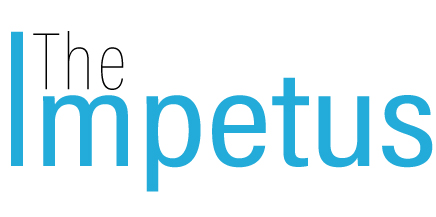
Sugar, a Highly Functioning Sociopath
One of the major problems contributing to weight issues is excess sugar consumption. To put this into context, the average daily consumption of sugar by Americans in 1822 was 9 grams a day. It is currently 153 grams a day… what should we be doing?
“Do your research. I am a highly functioning sociopath.”
Public enemy No. 1 is sugar!
One of the major problems contributing to weight issues is excess sugar consumption. To put this into context, the average daily consumption of sugar by Americans in 1822 was 9 grams a day. It is currently 153 grams a day. The average person in the U.S. consumes 130 pounds of sugar per year. This is nearly a 17-fold increase in less than 200 years. We change very slowly biologically, yet we have drastically altered what we are eating and the amount of sugar we are consuming.
Added sugar is the single worst ingredient in the modern diet. It provides calories with no added nutrients and can damage your metabolism in the long run. Eating too much sugar is linked to weight gain and various diseases like obesity, type 2 diabetes, heart disease, kidney disease and increased risk of cancer to name a few.
To monitor sugar consumption, it is helpful to understand that 4 grams of sugar is equivalent to one teaspoon. It is recommended that a healthy daily consumption of sugar should not exceed 24 grams or six teaspoons for women and 36 grams or nine teaspoons for men.
Although the U.S. leads the world in sugar consumption, this is a global problem. The top sugar loving nations include the following:
None of these rates of consumption for individuals is close to recommended daily allowance.
Sugar is highly addictive. Sugar activates the reward center in our brain the same way as many drugs, provoking similar cravings and withdrawal symptoms.
There are two simple Self Care principles that we can do to break the sugar addiction.
Read food labels
The first step we need to take is to read food labels to keep your daily consumption at a healthy level.
This becomes apparent given the fact that there are over 600,000 food items in the U.S. and 80% of them contain added sugars. Sometimes in foods that we wouldn’t suspect as having added sugars. So read labels and journal your daily added sugar consumption. Heather has created a simple Weekly Self Care Journal to help track this and other self care activities.
Let protein help
Eating protein is an easy way to curb sugar cravings. High-protein foods digest slowly, keeping you feeling full longer. Protein doesn't make your blood sugar spike the way refined carbs and sugars do. Protein shakes are ideal for this.
Nikken’s Kenzen Vital Balance protein shake contains organic moringa and naturally sweet monk fruit in addition to organic pea protein and organic vegetables. It is designed to help burn fat and boost metabolism as well as promote healthy brain function and the elimination of toxins in the body. With pre- and probiotics to assist in digestive and immune system activity, Kenzen Vital Balance is food for action and food for thought, perfect for all ages and a great way to not only nourish your body but also break the sugar addiction and Be Healthy by Choice.
Kenzen Vital Balance Label - Chocolate
$93 US
The Beginning of Discovery
For those of you that have been following Self Care and our subject matter, you might ask as I did, what is there to be skeptical about?
Skeptical or Cynical?
Following a recent event where I was speaking, I was approached by a woman who said she really enjoyed the Self Care Awakening talk I had given. I thanked her and asked if she had questions about the information presented. She responded with, the information was very good, but that she was a very skeptical person. For those of you that have been following Self Care and our subject matter, you might ask as I did, what is there to be skeptical about? Thankfully the teacher in me surfaced and I really wanted to know if she was skeptical or cynical. I have no issue with skepticism as it is a very important part of the discovery process. It’s easy to confuse being a skeptic with being a cynic The word skeptic is derived from the Greek skeptikos, meaning “to inquire” or “look around.”, which is a good thing. I do take issue with a cynic, who distrusts anything that is contrary to their belief. The first thing I had to ascertain before continuing the conversation was if I was talking to skeptical or cynical individual. As the conversation continued it became apparent that she was skeptical and looking for more information to help her process the Self Care Awakening. We talked about each of the subjects that I had just presented.
Water Matters
I asked our guest if she was skeptical about being well hydrated and if drinking enough water each day to counter balance our daily loss of water (about 10 cups) was a good idea. I referred her to “Down the Hatch”
Sleep Matters
Was she skeptical that sleep matters and we need 7.5 to 9 hours sleep a night to avoid sleep debt? That lack of quality sleep can adversely effect our health and that sleep is our most important part of our day. Referencing What Sweet Dreams are Made of…
Weight Matters
Might it be a good idea to have some measure of how much sugar we are consuming daily? And that it might be a good idea to limit that consumption to a healthy level. Self Care Defense 101: Hidden Sugar
Environmental Toxicity and Pollution in People
Was she skeptical that we live in a toxic world and that accumulation of these toxic chemicals could influence our health? Might it be a good idea to filter our air, drinking water, bathing water and take steps through good sleep, proper hydration and limiting processed foods to lower our internal pollution, our Body Burden. The Body Burden
These may sound like simple steps to be Healthy by Choice, but sometimes the simplest ideas have the greatest skepticism. Welcome the skeptic and provide the information so they can take the next step to be Healthy by Choice. None of us can afford to be cynical enough to leave our Health to Chance.
author: Gary Lindner, Ph.D.








